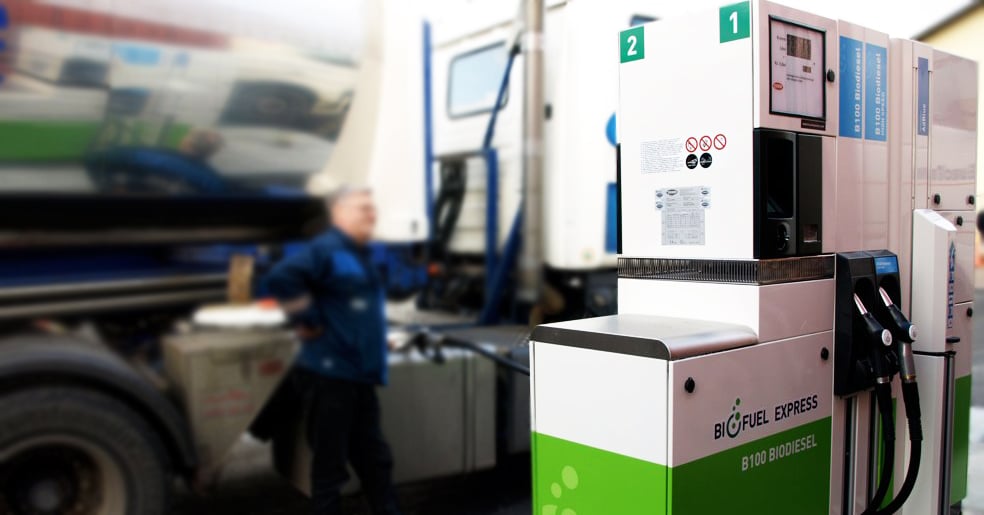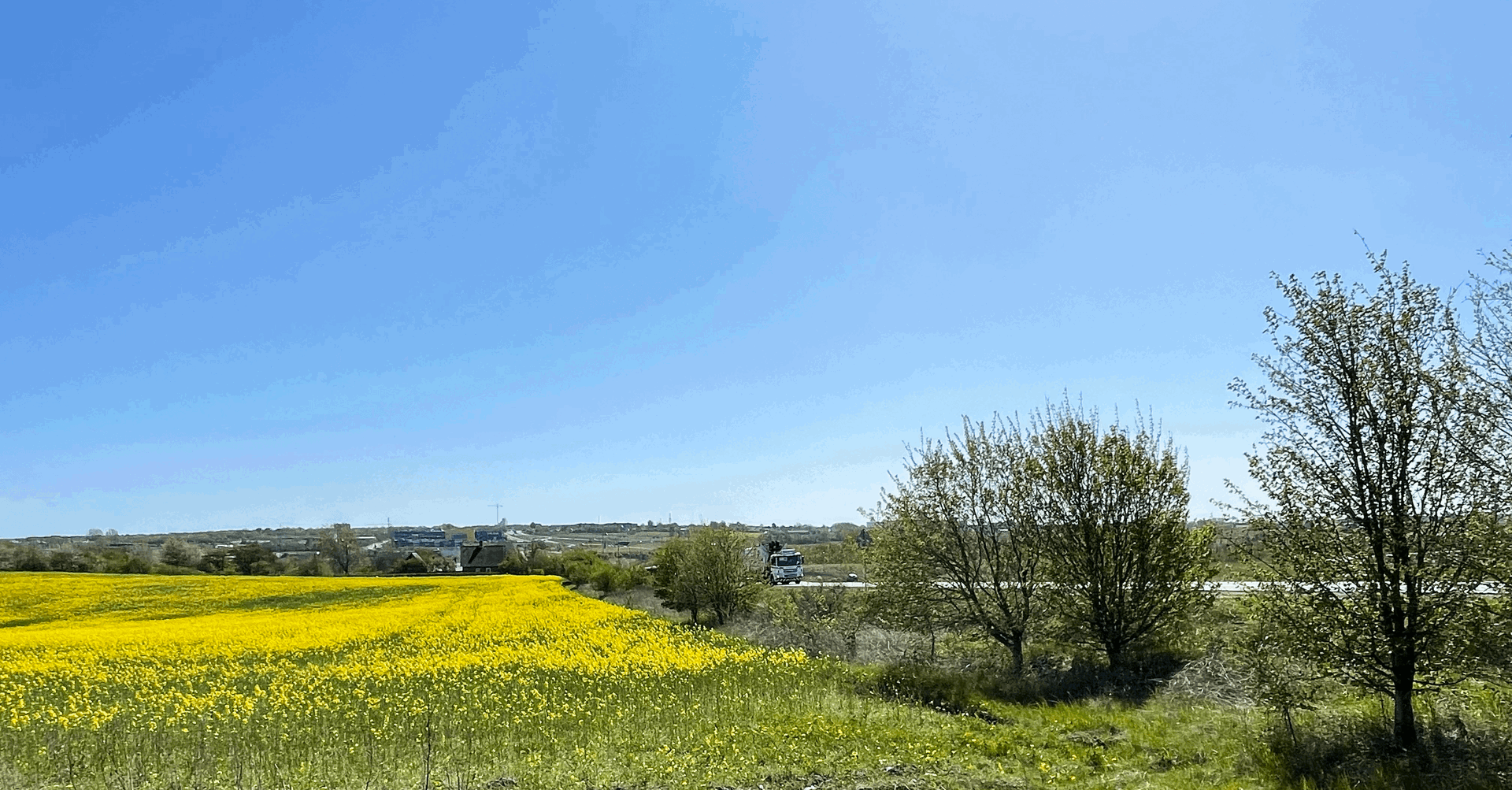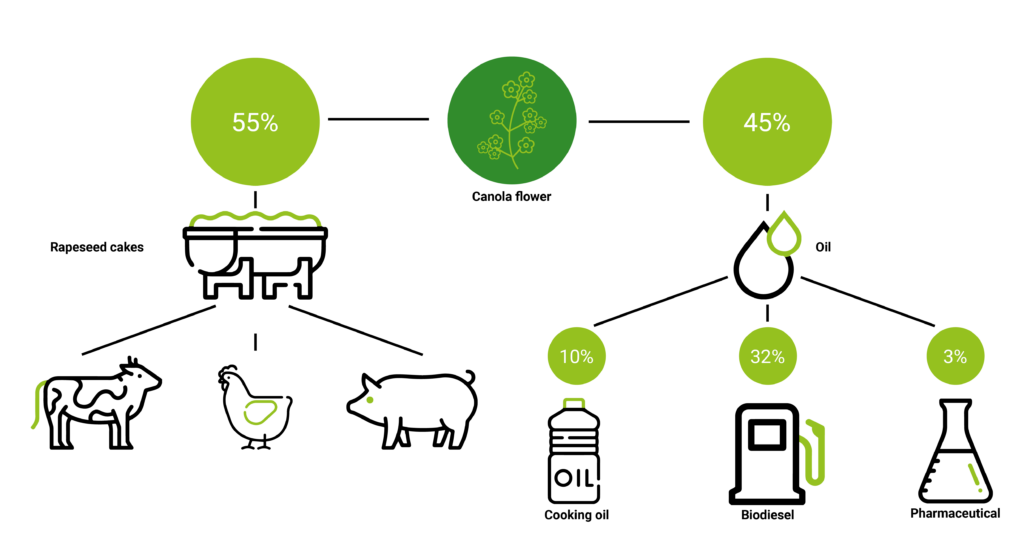

It’s the month of May and the rape has started blooming and is to find on many fields these days. The rape is often associated with rapeseed oil or biodiesel, but the rapeseed can also be used for several other things…
Rape and rapeseed provide us with a range of products in addition to rapeseed oil and fuel:
Protein feed
Rapeseed cakes are an important protein supplement for cattle, pigs, and other animals. Rapeseed cakes produced in the local areas help to replace imported animal feed made of soy from South America, which helps to reduce the total CO2 load.
Glycerin
Glycerine is a sugar alcohol that comes from oils and fats and is basically clear, odourless, slightly sweet in taste and absorbs water efficiently. It is often used in the cosmetics and pharmaceutical industries and can be found in hand sanitiser, detergents, foods, and creams.
Rapeseed is an essential crop in agriculture, as it, among other things, helps to increase the grain yield in the field the following year by 10-15%.
Out of the rapeseed, approximately half of it becomes B100 Biodiesel RME Premium, another half becomes protein feed, and the remaining part becomes glycerine.
About 32% of the cultivated biomass on the rapeseed field is used for energy and fuel. The vast majority of the fat from the seed is used for rapeseed cakes and otherwise rapeseed oil, but there are only a limited and declining sales of fat to this market normally, which of course has changed due to the war. So, under normal circumstances, where the feed for the animals still needs to be used, biodiesel is a natural outlet for the rest of the rapeseed so all can be used and not go to waste.
Our suppliers constantly optimise to extract the greatest utilisation from the rapeseed, so that as much glycerine and cooking oil comes out of the product as possible, as it has the greatest value.
Rapeseed production can thus help to displace both fossil fuels, as it reduces CO2 emissions by up to 70% compared to ordinary diesel and replaces the import of soy from abroad for animal feed – which all in all makes very good sense for the climate.

"*" indicates required fields
"*" indicates required fields